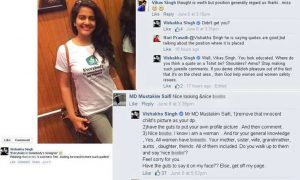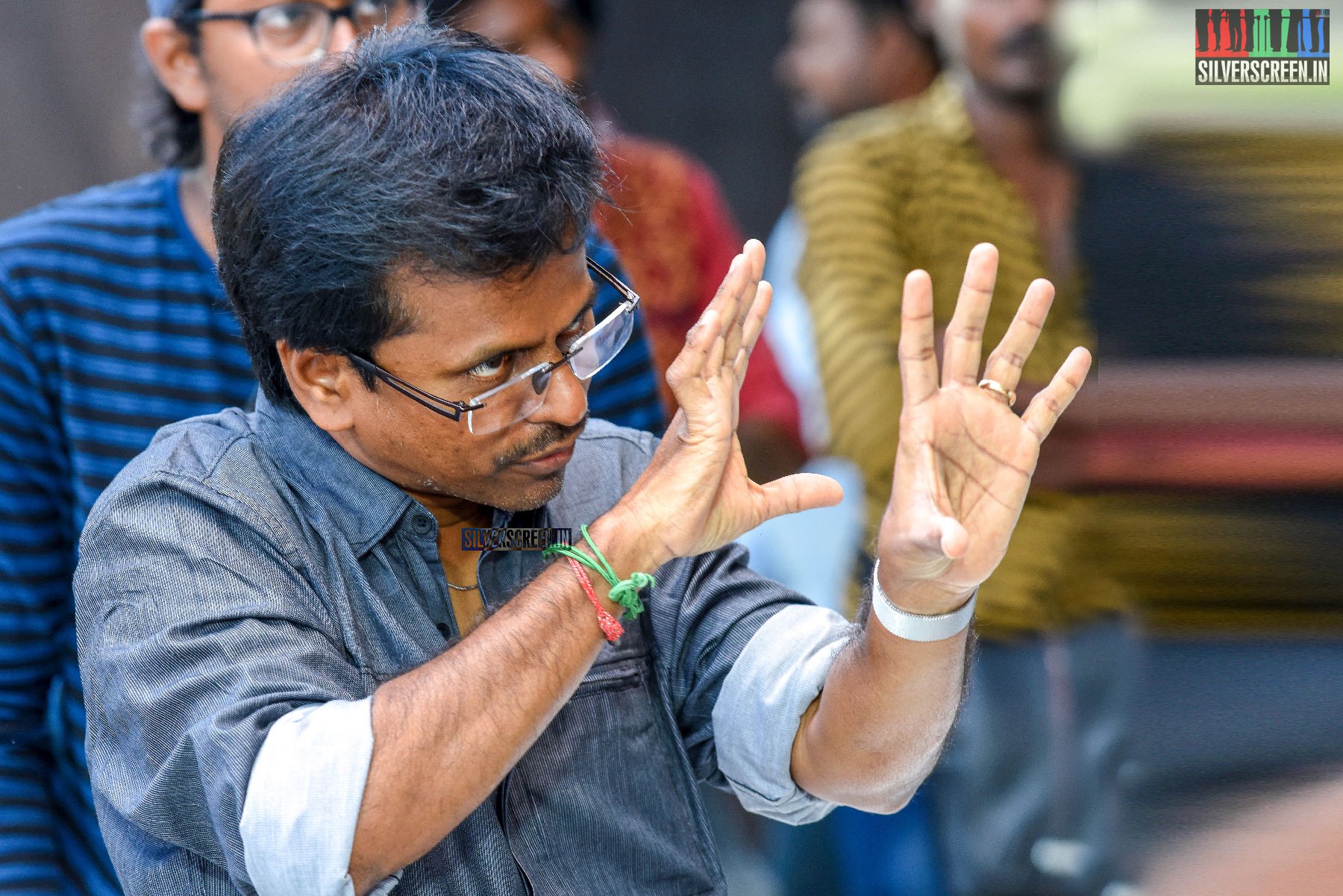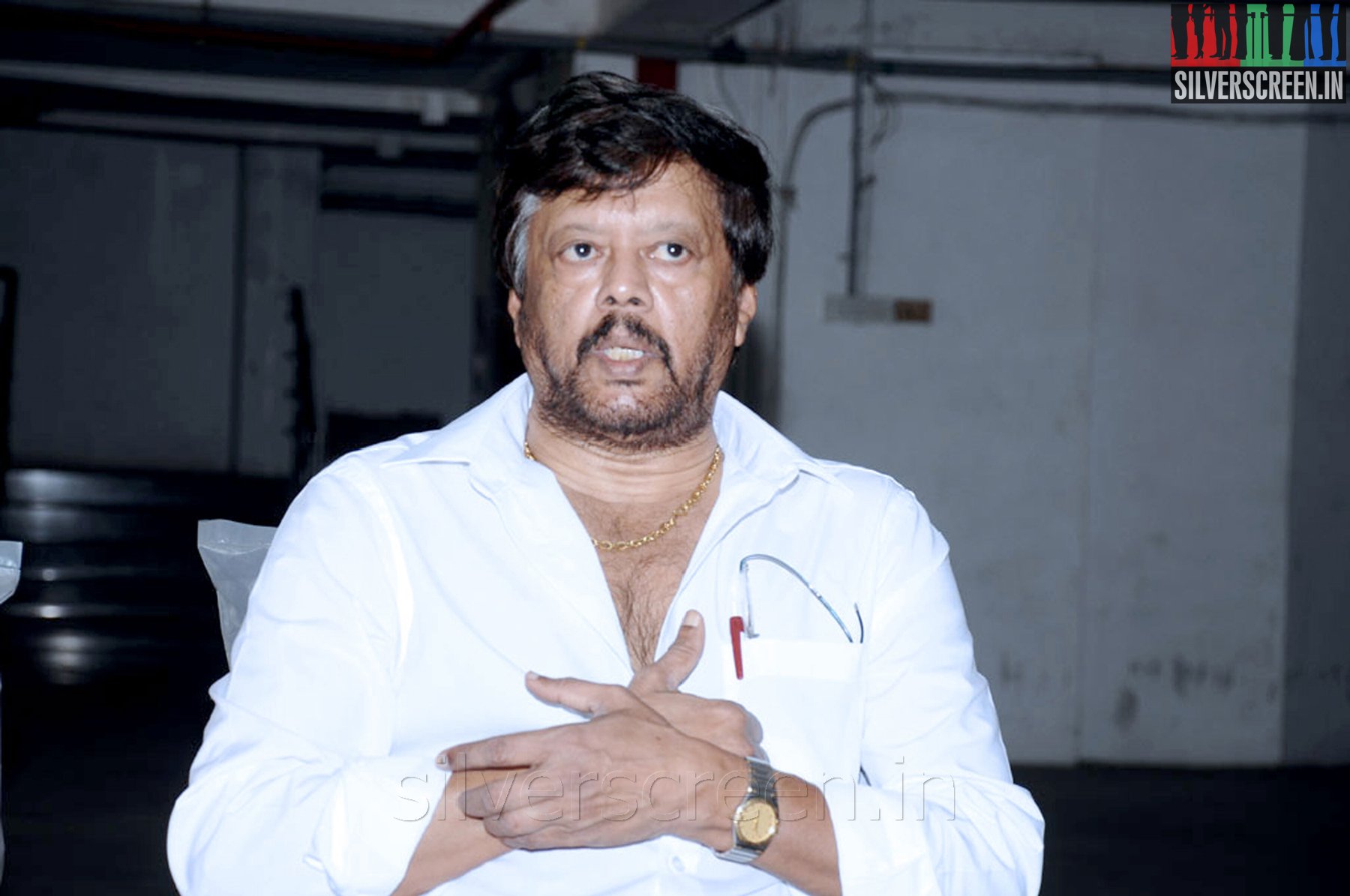Professional artists usually have a thick skin and a pretty good sense of humour. Take Rajamouli. For years, his films were lampooned in other films. Even his Eega hero’s needle wasn’t spared. But that didn’t discourage him from making a movie that broke all box-office records and put him on the front page of Forbes. Actors and actresses tend to be professionals who look past even the most dismissive criticism of their work.
But there are some things Rajamouli, or any male industry professional, never had to face. He never posted an innocuous picture-post tribute to his mother on Mother’s Day, only to see this innuendo-filled ‘news’ the morning after: ‘Guess Where Rajamouli Refuses To Take His Mom Along!’ It would be ridiculous. That’s what happened to Miya George, who has a word of warning for anyone reading a news report about actresses – take it with a pinch of salt.
Once, twice, or ten such comments could be mildly amusing. But, for female artists, it’s routine. Along with the social media boom, abusive comments against professional female artists and celebrities have also boomed. Singer Chinmayi is no stranger when it comes to such harassment. Recently, when actor R Madhavan tweeted that he would be celebrating ‘Thala Avani Avittam’ – a Hindu ritual, a Twitter user joked that word ‘Thala’ should be used only to refer to Ajith and no one else. Chinmayi found the tweet amusing and shared it on her page. The consequence of that retweet was quite unexpected.
Acid attack threats, death threats, with obscene and derogatory comments spammed the singer’s Twitter page. There was no stopping the hostile messages coming from people claiming to be Ajith-fans. Now, historically, there may have been communities where mild humour against a public figure could be license to kill and maim, but India isn’t supposed to be one of them. And the real question is – when did appreciation for an actor’s work entitle someone to hate speech? Chinmayi calmly pointed out that there was no connection between the star, and the online bullying by his ‘fans’:
And as I have always maintained it is never the fault of a star and neither is he responsible for fan behaviour online/offline.
— Chinmayi Sripaada (@Chinmayi) September 1, 2015
Talking to Silverscreen, Chinmayi’s mother and publicity manager Padmhasini said: “We have been abused time and again for four years and this controversy is nothing new. We just want to put an end to it. Whenever Chinmayi breaks new grounds, the attackers budge in and divert the topic. I recently received an award at the Mothers of India event in Mumbai and that’s when Chinmayi got stuck in this controversy. It’s not good of fans to post obscene and vulgar comments, disguising it in the name of an actor.” Despite the threats against her, Chinmayi has continued to speak against it, and hopes that things will change.
Huge respect to those who stand up against abuse. The voices are few. But I’m sure things will change. May your tribe increase lovely people
— Chinmayi Sripaada (@Chinmayi) September 1, 2015
The most heartening news is that female artists are beginning to take an active stands against sexism in social and other media. It’s reminiscent of Pulizer-winning Alice Walker’s words, quoted up front in a 2011 documentary on sexism in the US media. And Karl Marx would agree.
Walker writes, ‘The most common way people give up their power is by thinking they don’t have any.’
When Dinakaran supplement ‘Vellimalar’ posted a fake interview with her, actress Vidyullekha Raman (Vidyu), who debuted in Gautham Menon’s Neethane En Ponvasantham refused to simply let it slide. She deserves major kudos for calling them out, because the ‘interview’ was full of self-hatred and shaming:
“When my friends told me about a casting call for a Gautham Menon movie, I was puzzled. I doubted if I would get the role, thanks to my obesity. To carry this body to the cinema theatre itself is a challenge, and now I am surprised that I could become an actress. I used to cry so much and ask, ‘Why me?’”
The actress replied:
#VelliMalar – nice article. But I NEVER made a statement ridiculing my own body & how it’s a surprise I’m in films ? https://t.co/fDNPD9u9qx
— Vidyu (@VidyuRaman) August 28, 2015
Vidyu’s father and character artist Mohan Raman was furious over the fake interview and added that he was also present when the interview was happening along with the Vellimalar reporter and The Hindu reporter.
All statements quoted as hers are false – she has NEVER cried about her looks etc. Never ashamed of herself . https://t.co/SPiH29P4OG
— Mohan Raman (@actormohanraman) August 28, 2015
Ridiculous – I was present. The hindu tamil reporter also came along and recorded this… I challenge the reporter. https://t.co/HXtMMfNroM
— Mohan Raman (@actormohanraman) August 28, 2015
Heaping hatred on women’s bodies and telling them they should be ashamed of being seen in a ‘fat’ body is dangerous. Girls grow up thinking that how they look is more important than how they do in school, learn to operate technology, play a sport, handle a business or team, or express themselves creatively. Boys grow up learning that the most important thing about girls is how they look, and their masculinity depends on ‘appreciating’ it. Whether she considers it important or not. We’re hoping the upcoming Inji Iduppazhagi tackles this issue head on, but meanwhile, this 11 minute talk makes a simple statement about cinema and the world a dad wants his 3-year old son and daughter to grow up in. A world where she can imagine being a leader. A world where he can imagine being on her team.
As Marie Wilson says, ‘You can’t be what you can’t see.’ Fortunately, actresses are visibly coming forward to reclaim their stories and give us more realistic, and more powerful female role models.

Vidyu’s experience isn’t unique in a culture where actresses are routinely trolled on Twitter/Facebook and misrepresented in fake media stories. For instance, a Telugu magazine ran an ‘exclusive interview’ with award-winning actress Nayanthara, saying that she was getting married and quitting the industry. It’s reminiscent of the misogynistic fantasising in Anil Kapoor’s Laadla (1994), where the ‘uppity’ daughter (Sridevi) of an industrialist had the audacity to think that she could be the boss. The movie ends with her married to Anil Kapoor, warming his slippers, cooking him meals, and wishing him a happy day in the office.
The reporter who fabricated the interview would clearly love such a ‘happy ending’. It’s not enough of a ‘happy ending’ to have been a successful actress for ten years, apparently. Responding to the ‘news’, Nayanthara said that while she routinely overlooks a lot of fabricated stories about her, “I will definitely take it up with the authorities concerned and ask them for proof of the interview. Just because I don’t react to many media-made stories about me does not mean I will take things lying down.”

vishakha-singh-facebook1
It’s high time the media stops projecting their sexist fantasies onto ‘factual’ coverage. Someone might want to remind these reporters of a truth, most eloquently phrased by actress Deepika Padukone.
YES!I am a Woman.I have breasts AND a cleavage! You got a problem!!??
— Deepika Padukone (@deepikapadukone) September 14, 2014
A D V E R T I S E M E N T
The job of the media is to tell stories. True stories. Good stories. Lots of stories. The story of the ‘sexy woman and her cleavage and her happy ending as the hero’s love interest and wife’ is not a good story. It’s not a new story. These artists are their doing their job. Now if the reporters would just do theirs.
******



